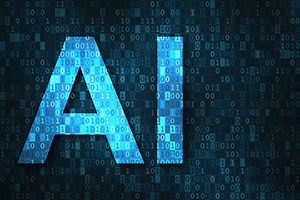AI and the Quest for a Meaningful Employee Experience
 Artificial Intelligence (AI) will require the entire workforce to learn new skills, whether it’s to keep up to date with an existing role or pursue a new career as a result of automation. AI will not eliminate jobs; it will create them. And HR will be focused not only on the employee’s ability to do the work, but also on how work is creating a meaningful employee experience.
Artificial Intelligence (AI) will require the entire workforce to learn new skills, whether it’s to keep up to date with an existing role or pursue a new career as a result of automation. AI will not eliminate jobs; it will create them. And HR will be focused not only on the employee’s ability to do the work, but also on how work is creating a meaningful employee experience.
In creating that meaningful experience, institutions will need to continually look for ways to offer opportunities for staff to nurture their professional development. Prioritizing investment in employee development is commendable. However, investing in employee development in order to inspire them is and should be the driver behind that investment.
It’s Not What You Do, But What You Can Do
In what ways will AI assist with inspired work, gauge satisfaction, and distinguish between what employees do and what they can do? Looking at work this way will enable individuals, managers and institutions to look beyond job roles to the skills and behaviors necessary for successful performance.
In the movie Apollo 13, Gene Kranz, a NASA aerospace engineer attempting to get the astronauts safely home, was quoted by actor Ed Harris as saying, “I don’t care what anything was designed to do, I care about what it can do.” Imagine if that quote was true for helping ascertain people and fit? So, for example, “I don’t care what Carol in benefits is supposed to do, I care about what Carol can do.” Could this philosophy help create an environment where people want to work and thrive?
How Can HR Support AI and Vice Versa?
Let’s start with the bad news. Not many leaders have had extensive experience working in artificial intelligence for human resources. We are just beginning to scratch the surface to understanding how AI can support, for example, recruitment efforts. We don’t have enough data via AI implementation to successfully ascertain how well an individual was recruited, onboarded, learned, etc.
The good news is that no other group is more qualified than HR to talk about people and how people can work with and learn from AI.
Human resources leaders have the know-how to talk about the most critical resource, people. And HR can begin the conversation about the AI implications for their institution’s business model by asking, “What will be the right environment, the right time and the right skills to manage and motivate people?”
HR can lead the conversation about:
- Employees and their work experience with a focus on improvement
- Policy changes needed to shape and support the changing workforce and workplace
- The role of the institution as a community partner preparing individuals and the next generation for future work opportunities
- Redesigning and rebuilding the operating structure from the ground up
- New job roles needed and how to upskill employees for these positions?
- Identifying data that will matter and be measured (increasing diversity in the talent pool, creating a more effective employee and manager relationship, improving the overall recruitment process, understanding skill gaps and how to fill them, etc.)
- The plan for navigating the change AI will bring about
AI Isn’t Going Away
Using AI is an institution issue with huge HR implications. AI will impact people and people practices (ex. in talent management such as recruiting, onboarding, career development, performance management, succession planning, etc.). AI will help transform job roles and change how the work gets done. AI is not going away. For institutions, it will aid in automating repetitive and predictable processes and free up time for more meaningful work and interactions with others.
Did You Know? According to LinkedIn’s 2020 Emerging Jobs Report, an artificial intelligence specialist was the top emerging job in the U.S. Its annual growth is at 74 percent in the past four years. One of the top industries hiring this talent is higher education. With the influx of AI functions across all departments and industries, it is essential to have a specialist within the organization who can identify the right kind of candidate with the right kind of skills. This specialist has emerged much the same way as the CIO emerged two decades ago.
Related Resources:
Defining Success With a Higher Ed HR Competency Model
CUPA-HR Learning Framework and Resources
Creating Your Individual Development Plan (E-Learning Course)


